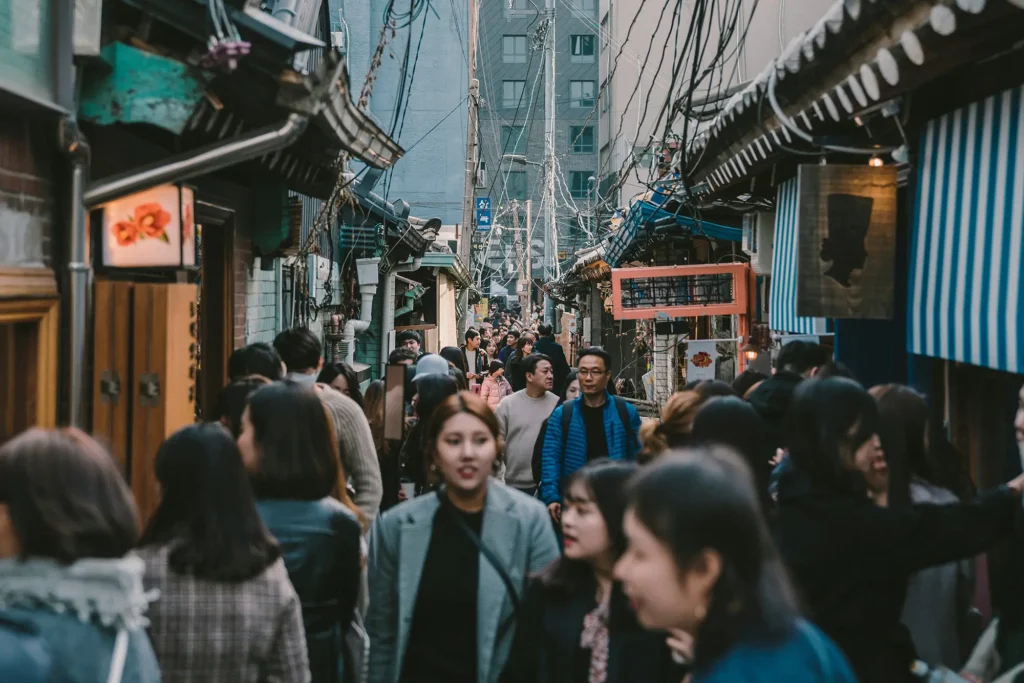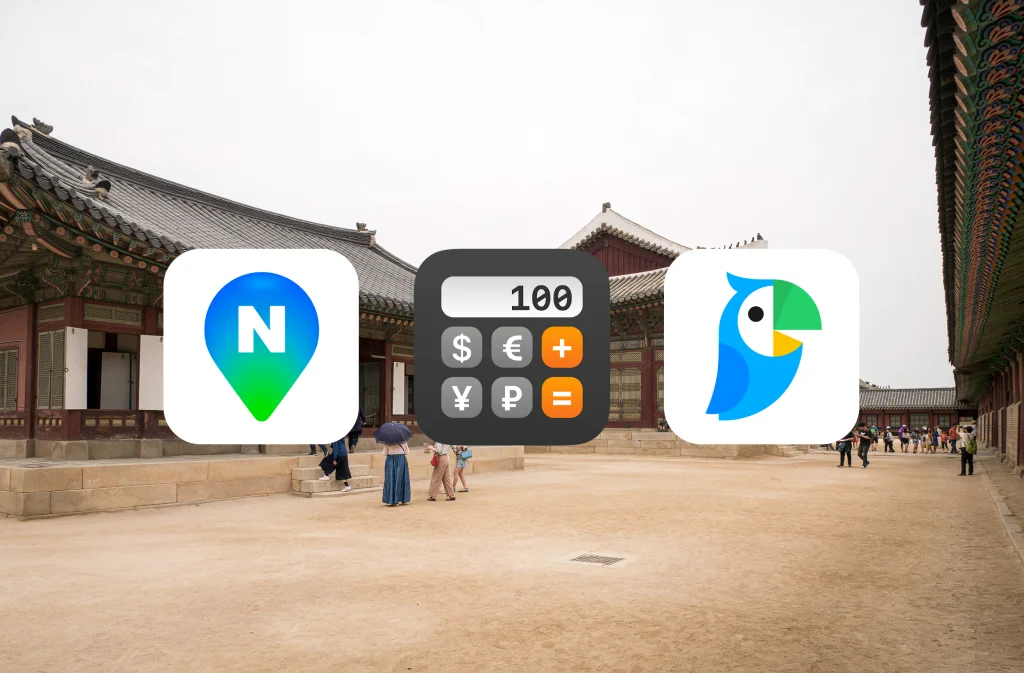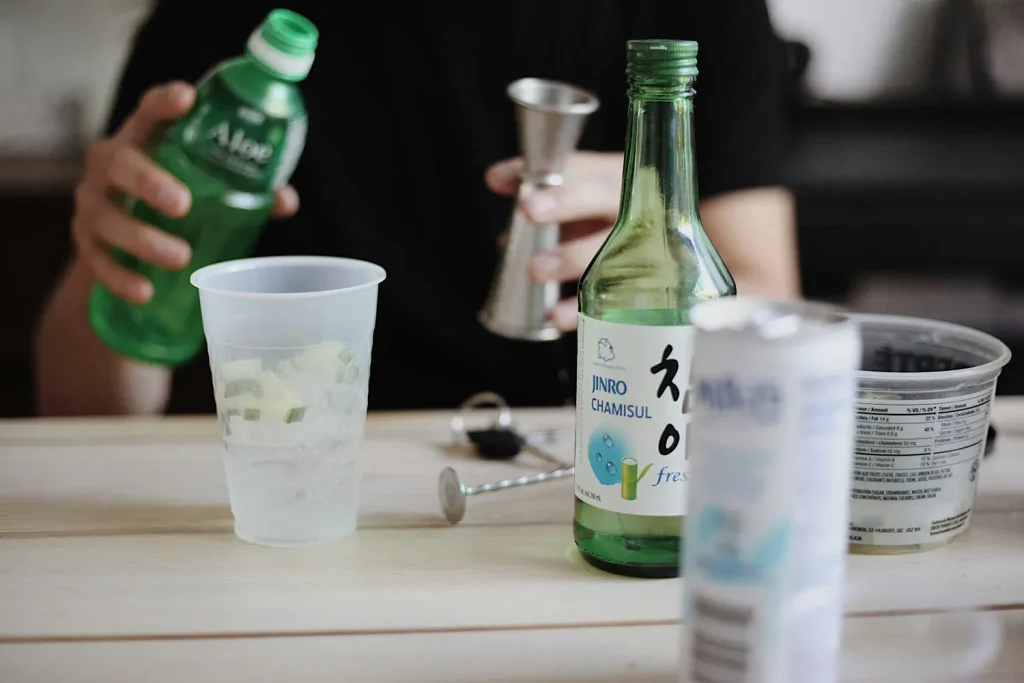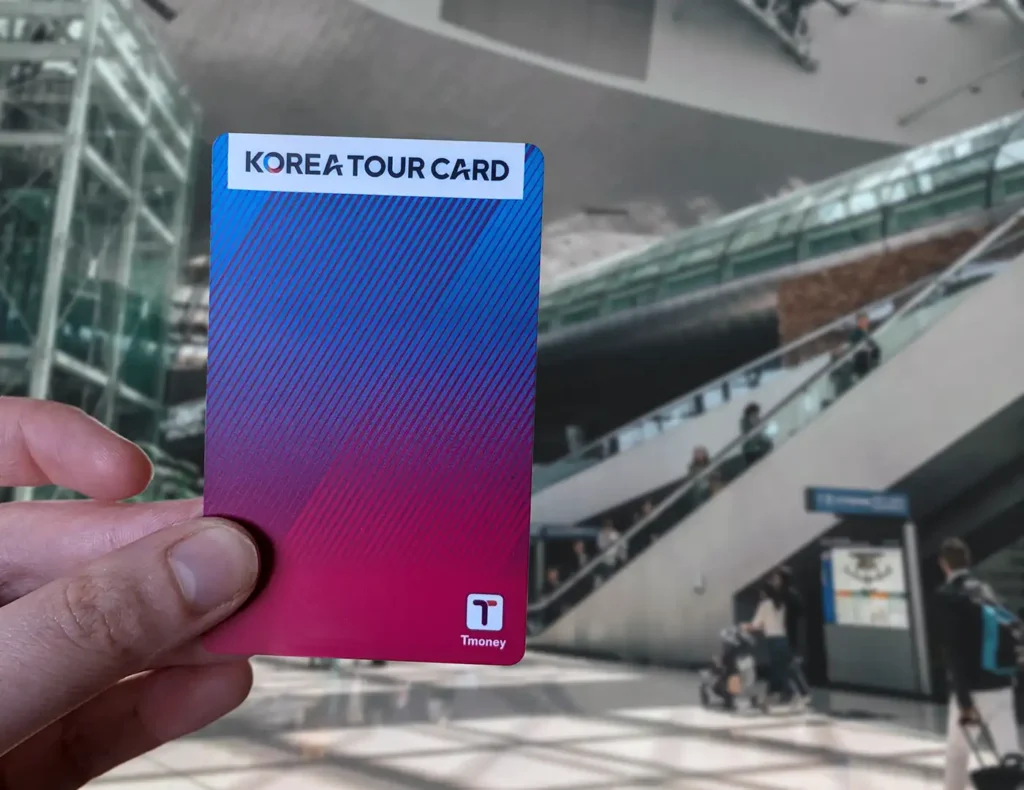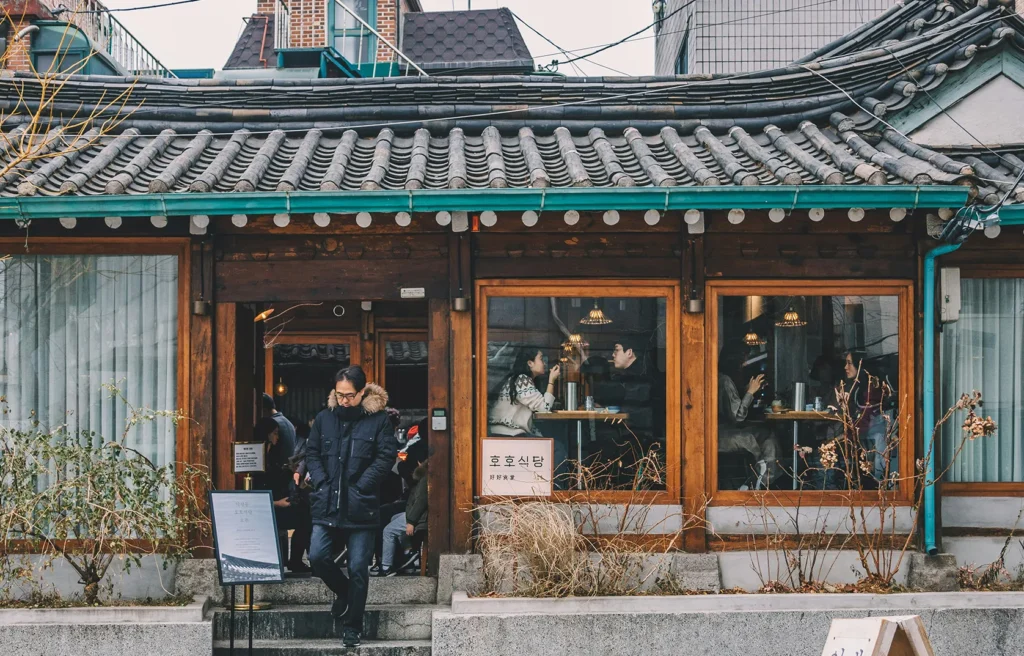Note: This is based on my personal experience as a Caucasian Australian woman visiting Seoul with my partner, so your experience might be different.
Overall Safety in Seoul
Seoul is consistently ranked as one of the safest capital cities in the world, with low crime rates and a visible police presence. Whether you’re stroking through ancient palaces or experiencing the bustling nightlife, the city generally feels safe and welcoming.
During our visit, we felt safe in every district, regardless of the time of day. The locals we encountered were also warm and hospitable, and we experienced no negative attitudes toward foreigners.
Crime in Seoul
As I mentioned, Seoul is a very safe city, and incidents of pickpocketing or theft are rare. It’s still a good idea to stay cautious, especially in busy areas like Myeongdong or Namdaemun Market, particularly with Korea’s rise in tourism.
During my time in Seoul, I kept my crossbody bag close to me, just like I do in every country I visit. Consider using an anti-theft bag and avoid keeping valuables in easy-to-reach pockets. Seoul’s safety is high, but it’s still smart not to get too complacent.
Natural Disasters
While Seoul is not particularly prone to natural disasters, it’s important to note that South Korea’s typhoon season runs from June to November, peaking in late summer. If you’re visiting Seoul in August or early fall, keeping an eye on weather forecasts is essential.
During our August visit, my partner and I got emergency alerts about approaching heavy rain. If the weather is predicted to be dangerous, the government issues warnings, which you’ll receive if you have a local SIM card. Just make sure to translate any alerts to stay informed.
While Seoul’s infrastructure is built to handle typhoons, staying updated on weather forecasts and being prepared for possible disruptions will help ensure a safe and stress-free trip.
Political Tensions
Domestically
Since South Korea became a democracy in the late 1980s, its government has faced challenges, including corruption scandals within parliament. These scandals led to impeachments and caused many people to lose trust in their leaders.
As a result, protests have become a common way for South Koreans to express their opinions. While protests in South Korea are usually peaceful and well-organised, they can still cause disruptions, so it’s best to avoid large crowds or political gatherings.
By staying aware of your surroundings and using common sense during times of political unrest, you can navigate these situations safely.
With North Korea
Although a ceasefire has been in place since the end of the Korean War in 1953, the two countries never signed a peace treaty, so they are still technically at war. Since Seoul is so close to the North Korean border, it’s natural for some people to worry about political tensions.
Despite these concerns, life in Seoul goes on as normal, with most residents unaffected by political events in the region. South Korea has a strong defence budget and keeps a close eye on North Korea’s activities, so it’s very unlikely that an attack would happen without warning.
In the rare case of a serious threat from North Korea, foreign governments are usually advised to evacuate their embassies if safety can’t be guaranteed.
As a tourist, you’re unlikely to be affected by domestic or international political issues during your visit. However, for added peace of mind, you can register with your embassy and stay updated on any relevant news.
Healthcare
Seoul is a clean city with excellent healthcare facilities. Fortunately, my partner and I didn’t need medical attention during our visit, so I can’t share personal insights. For detailed information on handling medical emergencies, the Visit Seoul website is a great resource. It also provides information on finding hospitals with international clinics.
As with any trip abroad, make sure your travel insurance covers medical expenses – you never know when you might need it!
Air Quality in Seoul
Air quality in Seoul can occasionally be a concern, especially during the dryer seasons as the levels are higher. If you have respiratory issues, it’s a good idea to monitor the air quality index and wear a mask on days with heavy pollution.
When we visited Seoul in August (typhoon season), we noticed a noticeable shift in air quality after a massive downpour on our second day. The rain left the air feeling fresher and the skies noticeably clearer.
Food and Water Safety
South Korea maintains high standards of food safety, and cleanliness is a key part of its culture making it generally safe to enjoy food from a wide range of places.
When exploring Seoul’s street food scene, it’s wise to take a few precautions. Look for stalls where vendors are using gloves or utensils instead of handling food directly, and stick to busy spots with long lines – these are more likely to be serving fresher food.
During our trip, we tried food from numerous street vendors and restaurants without any issues!
Can you drink tap water in Seoul?
Yes, tap water in South Korea is safe to drink. While this wasn’t always the case, significant upgrades to the water system have made tap water reliable and clean. That said, many older generations still prefer bottled water, likely out of habit. Bottled water is widely available and affordable if you prefer it.
During our trip, we used reusable bottles and refilled them daily with tap water from our hotel without any issues.
Transportation Safety
People widely regard Seoul’s public transportation system as one of the best in the world.
The subway, in particular, features a clear color-coded system and English signage, making it easy for visitors to navigate. The stations remain well-lit and clean, and staff make announcements in both Korean and English. People on the subway tend to be very quiet and polite, making it a comfortable ride. If traveling late at night, particularly alone, I’d avoid empty subway carriages for added peace of mind.
Taxis in Seoul are also reliable, but it’s important to stick to official taxis and use ride-hailing apps (like Kakao T) to avoid potential scams.
5 Tips for a Safe Trip to Seoul
While Seoul is one of the safest cities in the world, these tips will give you an extra peace of mind during your visit:
1. Stay Connected
Make sure your phone works in Seoul, and consider getting a local SIM card or an e-sim. This will help you navigate around the city so you can avoid getting lost. We used a local sim card from LGU+ and didn’t have any reception issues. We found it was cheaper to pre-order this through Klook and pick it up when we arrived at Incheon Airport. It also came bundled with a T-money card, which saved us the extra cost of buying one for the subway.
If you’d rather go with an eSIM, I recommend checking out Saily. I haven’t used Saily in Korea, but I’ve had a great experience using them in Europe.
2. Download NAVER Map
Google Maps doesn’t work very well in South Korea. For navigation, NAVER Maps and Kakao Maps are essential tools as they provide detailed, real-time information in English. They’re incredibly useful for finding the safest and most efficient routes, whether you’re walking, taking public transport, or driving. Unlike Google Maps, which has limited functionality in South Korea, these apps are highly accurate and well-integrated with local transport systems.
If you’d like to learn more about using NAVER Map in English check out my full guide with step-by-step instructions.
3. Learn Basic Korean Phrases
Many people, especially those working in tourist areas, speak some English. However, you’re likely to face language barriers during your trip to Seoul.
Being able to ask for directions, order food, or explain an emergency situation can make your trip not only smoother but also safer. Even if you can’t hold a conversation, just knowing a few key words is a polite gesture and will likely make locals more willing to help. Be sure to have Google Translate on your phone as well for extra support if you need it.
For a handy guide, check out these Korean words to learn before visiting.
4. Stick to well lit areas at night
Seoul’s vibrant nightlife is a must-experience. Whether you’re exploring bustling districts like Ikseon-dong or heading back to your accommodation, staying on well-lit streets and steering clear of dark, quiet alleyways can help you feel safe and at ease.
5. Carry cash
Seoul is a digital hub, but there are times when cash is useful. You might need it to reload your Tmoney card, buy from cash-only vendors, or deal with a temporary payment platform outage. Being prepared for unexpected situations helps you avoid stress and makes your experience safer and more enjoyable.
If you’re curious about how much won to bring to Korea I have a dedicated article about how much we brought with us and what we spent.
